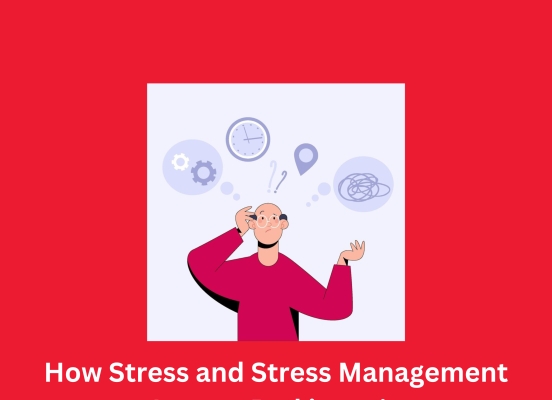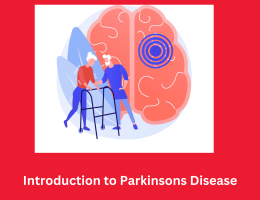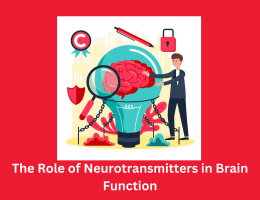
How Stress and Stress Management Impact Parkinson’s
- By admin --
- Monday, 08 Apr, 2024
Stress has emerge as the norm in trendy speedy-paced lifestyle, where extra individuals spend a number of time plugged into technology. Stress may have a adverse effect on both intellectual and bodily fitness. It can be short-term, acute pressure introduced on by events like moving to a brand new apartment or long-term, persistent pressure delivered on by means of chronic issues like ordinary financial or fitness issues.
Acute stress is frequently reported by people with Parkinson's disease (PD) to exacerbate their motor symptoms, including tremor, dyskinesia, and freezing of gait. Chronic stress also appears to exacerbate non-motor symptoms, including despair and anxiety, according to people with Parkinson's disease.
Notably, studies on PD mice has also found out that long-term pressure may additionally quicken the course of Parkinson's disease. Increasing our information of the way pressure impacts Parkinson's ailment (PD) and investigating capacity coping techniques are essential to higher dealing with the disease.
Four questions were the focus of a recent study "Stress and mindfulness in Parkinson's disease - a survey in 5,000 patients" (van der Heide, Speckens, et al., 2021) that was published in the journal Parkinson's Disease.
- Do people with PD experience more stress than a control group?
- Which personality and disease characteristics are associated with stress?
- Which PD symptoms are especially sensitive to stress?
- What strategies might successfully help reduce stress for people with PD — with particular attention to mindfulness (defined in the study as moment-to-moment, non-judgmental awareness).
Participants in the study comprised 1,292 people without Parkinson's disease (average age 60.8 years, 78.0% women) and 5,000 people with Parkinson's disease (average age 67.3 years, average time living with PD 5.9 years, and 48% women). 93.9% of respondents to the study identified as Caucasian, 0.5% as African American, 1.0% as native Alaskans, 1.5% as Asian, and 3.0% as not sure of race. The majority, 82.6 percent, were Americans. Perceived tension, anxiety, self-compassion, excessive and intrusive negative thoughts (rumination), awareness of one's thoughts and feelings in the moment (dispositional mindfulness), and a variety of other well regarded and validated scales were measured. Furthermore, the research facilitated unrestricted feedback from the subjects, enabling them to enumerate other symptoms impacted by stress.
Results
Understanding the effects of stress:
- Individuals with Parkinson's disease (PD) exhibited markedly lower scores than non-PD individuals in almost all categories, such as anxiety, perceived stress, and depression.
- All of the PD symptoms included in the survey, such as depression, difficulty sleeping, involuntary movements, freezing of gait, and bradykinesia, were made worse by stress (slowness of movement).
- Tremor was the PD symptom that had the biggest stress impact, affecting 81.8% of patients.
- Higher stress levels in PD patients resulted in increased ruminating, worse quality of life, dispositional mindfulness, and self-compassion scores.
- Higher stress levels were associated with poorer daily illness severity indicated by PD patients.
- There was no difference in self-compassion between PD patients and non-patients.
- Cognitive impairment, loss of attention, confusion, decreased executive function, speech and communication difficulties, and emotional symptoms (anger and frustration, worry, anxiousness, apathy, and pain) were also added to the list of stress symptoms by people with Parkinson's disease (PD).
Studying stress management methods:
- The most popular method of stress reduction (83.1%) was exercise (walking, cycling, swimming, sports, yoga, Pilates, or Tai Chi), with positive results noted for all motor and non-symptomatic domains.
- 38.7% of PD research participants reported practicing mindfulness, which was associated with improvements in both motor and non-motor symptoms. Of these, 60.2% reported improvements in depression and 64.7% in anxiety.
- Of the 38.7% of PD patients who practiced mindfulness, 85.7% said that other PD patients should also practice it.
- The observed improvement in Parkinson's symptoms increased with the frequency of mindfulness practiced by persons with Parkinson's disease (PD); over half (53.2%) exercised mindfulness at least once a week, and 21.5% practiced once a month or less.
- Regardless of the use of PD medication and the length of time a person had been diagnosed with PD, mindfulness was deemed to be beneficial.
- 43.4% of those who did not practice mindfulness expressed curiosity in learning how to do so.
- Both groups' mindfulness practitioners scored higher on perceived stress and dispositional mindfulness.
The results of this study unmistakably imply that individuals with Parkinson's disease (PD) are more stressed than the general population. The fact that increased stress sensitivity resulted in a marked deterioration of both motor and non-motor symptoms is very concerning.
The degree of PD signs and symptoms can be lessened by means of training mindfulness, which is the deliberate, lively attention of the present second, witnessed with out judgment. This have a look at confirmed that mindfulness significantly reduces anxiety and depressive signs. Exercise had a positive impact as nicely. It's unclear if exercise directly lessened the severity of PD symptoms by lowering stress.
Prior research has indicated that mindfulness is a beneficial adjunctive treatment. The National Institute of Mental Health states that over time, the body's ongoing strain from chronic stress can lead to major health issues including diabetes, high blood pressure, heart disease, and other ailments, including mental disorders like anxiety and depression. In addition to impairing the immune, digestive, cardiovascular, sleep, and reproductive systems, chronic stress can also cause headaches, insomnia, depression, rage, and irritability.
Stress has been demonstrated to have a "considerable and detrimental influence on quality of life and on symptom severity" in the PD population, according to the study's authors. Additionally, this examine implies that the PD population can also gain from incorporating some self-control strategies, inclusive of mindfulness. To better understand how mindfulness and bodily exercise could be tuned to most advantages to motor and non-motor tactics, greater research with a greater various pattern size is necessary.





